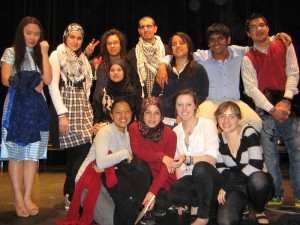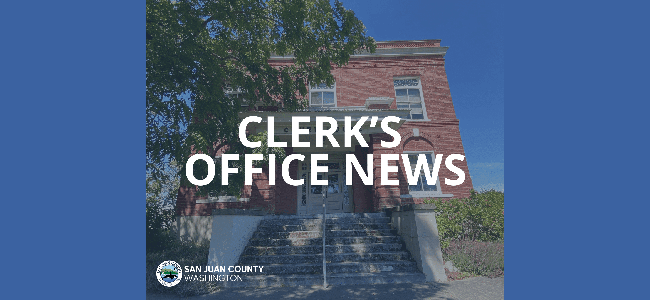
Cho from Hong Kong, Malak from Palestine, Julian from Colombia, Achmed from Palestine, Ofir from Israel, Robin from Malyasia, Mohammed from Afghanistan. Middle row Safa from Yemen, Kneeling: Cheyenne from Barbados, Fatima from Afghanistan, Emma Smith, Adriana from Italy
Orcas Island’s Emma Smith brought a group of young people from around the world, students with her at United World College’s campus in New Mexico to speak to island students at Orcas Center today.
- Achmed and Malak from Palestine,
- Ofir from Israel
- Safa from Yemen,
- Robin from Malaysia
- Cho from Hong Kong
- Cheyenne from Barbados
- Julian from Colombia
- Adriana from Italy
- Mohammed and Fatima from Afghanistan
Emma began and ended the afternoon reading the poem: “The rhythm of my heart is the death and birth of all that is alive,” and then introduced the student who, speaking in their native Arabic, Hebrew, Mandarin, French, Italian, Spanish-Portuguese, Pashtun, and Persian repeated the United World College mission statement: “United World College makes education a force to unite people, nations and cultures for peace and a sustainable future.”
Orcas students listened intently as their peers spoke of life in their native countries:
- of “the privilege of going to school in the morning, and knowing you might come home alive in the afternoon,”
- of parents who are so “crazy” that they thought their daughter should receive higher education instead of being married off as a teenager,
- of being a bi-racial child in a country scarred by the history of slavery: “I fit in nowhere,”
- of marveling that people feel secure in leaving their homes with unlocked doors
With flags, maps and photos they told the stories of their everyday lives, with segregation walls towering high overhead, intimidating checkpoints with lines and inspections, and geographic areas that determine whether you’ll be able to build a permanent home or go to high school. Wearing tennis shoes and hoodies, headscarves and platform heels, the knowledgeable and articulate students repeated the message they’ve learned:
“If we can come together and realize our hopes and beliefs are the same, why can’t countries?”
While honoring their countries, they didn’t shy from disagreeing with government policy or criticizing armies, police forces, ignorant teachers or a local economy that relies on crime. They asked the American students to “make a difference, change the world” by individually rejecting choices, such as using pot or cocaine, that are life-and-death matters for the people of their homelands.
They spoke with pride and indignation of their countries’ histories and cultures, and Robin from Malaysia “brought it all back home, saying, as any Orcas homeboy might,”I want to go back because of the food I ate as a kid – the food my Mom made me.”
**If you are reading theOrcasonian for free, thank your fellow islanders. If you would like to support theOrcasonian CLICK HERE to set your modestly-priced, voluntary subscription. Otherwise, no worries; we’re happy to share with you.**







These are my school mates. If you want to find out more about the United World College-USA or the United wolrd College network go respectively to uwc-usa.org or uwc.org. You will be very interested. We have studens from all over the world; for example I from Niger and I know people from more than 80 countries. Best experience ever!
Ahmed Hemeid from Palestine …Good Job brother